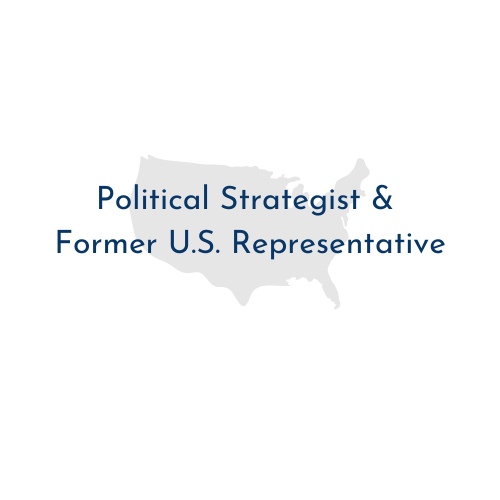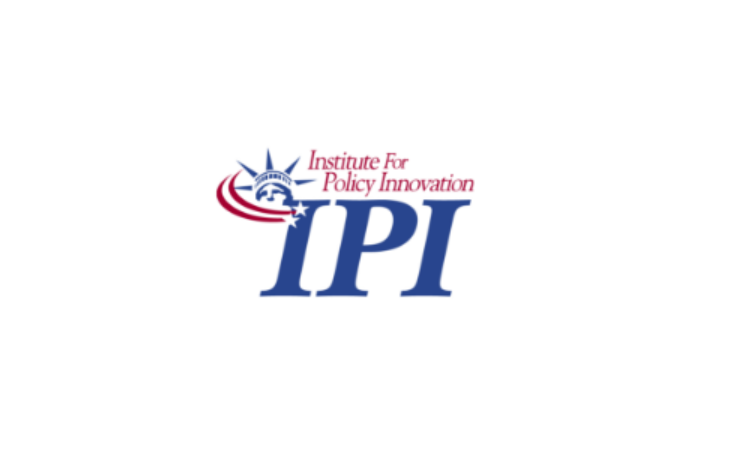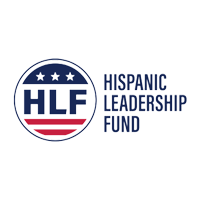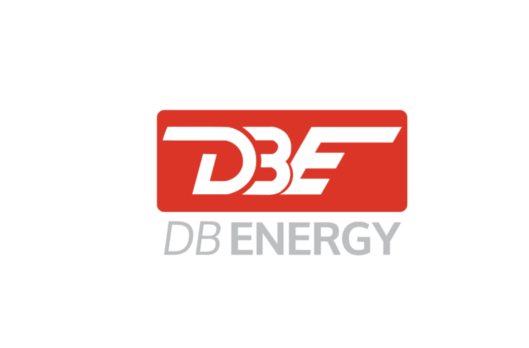Public Policy Commentary
2000
Public Policy Commentary

Michael Toth
Director of Research at the Civitas Institute (University of Texas at Austin)
“This is giving us, for freight, a high-speed express lane from coast to coast without a single dollar of taxpayer money. It’s going to cut emissions… help people get their Amazon and UPS packages faster.”
.png)
Jeffrey Depp
Senior Council for Law and Policy at the Committee for Justice
“Combining Union Pacific and Norfolk Southern stands to deliver real, measurable benefits… These benefits come through private investment, not public spending. Freight rail is one of the few infrastructure sectors in America that finances its own upkeep, investing roughly $23 billion of private capital each year, or six times more than the average manufacturer."

Brigham McCown
Director at the Hudson Institute and a Member of the USDOT Advisory Board
“Today, long-distance rail shipments must often pass across multiple carriers, adding interchange delays, extra handling and fragmented visibility. A unified network could eliminate many of those friction points, cutting days off cross-country runs, improving reliability and offering shippers a seamless experience more comparable to trucking—without drawing on taxpayer funds. Shifting even a portion of the heaviest freight back to rail would also reduce highway wear, ease the driver-shortage burden and lower emissions and crash exposure per ton-mile. …[T]his is not an argument for rail at the expense of trucking. Trucks remain indispensable for first- and last-mile delivery and for much of America’s freight. A healthier, more balanced system benefits both modes.”
.png)
Robert K. Nelson
Mayor of Bay City (Texas)
“This merger is about more than just railroads—it’s about securing the future of our transportation network, supporting economic development and ensuring American freight rail remains globally competitive.”
.png)
Peter Roff
Veteran Political Journalist and Public Policy Analyst
“The rail industry currently delivers significant economic benefits. According to the Association of American Railroads, every railroad job creates almost four additional jobs in sectors such as manufacturing, logistics and technology. The merger’s expansion of operations and infrastructure investment will generate thousands of high-paying jobs and create stability in communities along the rail lines. It will also support long-term workforce growth, guaranteeing stable, lucrative professions for many years to come.”

George Landrith
President of Frontiers of Freedom
“When freight moves freely, the entire nation benefits. Grocery store shelves stay stocked, manufacturers can keep production on schedule and products reach markets without costly delays. Lower transportation costs ripple through the entire economy, reducing the price of everyday goods, stabilizing supply chains and strengthening the financial security of American families. What begins with fewer bottlenecks on the rails ends with more reliability and affordability for the workers, consumers and businesses who drive America forward. Everyone wins when efficiency, competition and innovation work together to strengthen the nation as a whole.”

Ken Buck
Political Strategist and Former U.S. Representative
“Reindustrializing the country will require more than factory construction. It calls for a modern, resilient supply chain to move what those factories produce. ...The Union Pacific-Norfolk Southern merger represents a chance to rebuild a vital piece of that chain. It would bring competition and efficiency back to freight transport, relieve pressure on public infrastructure and keep America's economic engine running safely and reliably.”
.png)
Jordan McGillis
Economic Innovation Group Fellow
“Connecting America’s farms, mines, factories and harbors by rail—the safest land transport method around and the fastest for heavy goods—is an essential task for boosting the nation’s productivity and realizing its industrial potential. ...It’s time the United States gets a unified railroad and ushers in another golden age.”

Texas Insider
"[I]nterchange delays between carriers, common in a multi-operator system, often slow supply chains and inflate costs for shippers and consumers alike. The UP-NS merger would eliminate many of these inefficiencies, creating seamless routes and reducing transit times across the state. The result: lower costs, faster deliveries and a more reliable transportation option for local businesses. ...For Texans, the impact of the STB’s decision is clear: a transcontinental rail network promises to further speed Texas’s robust and resilient economic growth."

Rob Maness
Retired U.S. Air Force Colonel
“The proposed merger between Union Pacific and Norfolk Southern presents a historic opportunity. For the first time, uninterrupted coast-to-coast service would connect military bases, defense manufacturers, ports and more. ...This [Surface Transportation Board] review must recognize the deal for what it is: a national security imperative that strengthens supply chains, fuels energy independence, creates American jobs and ensures military readiness. ...This is our moment to invest in infrastructure that keeps us free and competitive — reminding the world that American power is built on American steel, American energy and American grit, moved across American rails.”

Tom Giovanetti
President of the Institute for Policy Innovation
"The recently proposed merger of Union Pacific and Norfolk Southern represents an opportunity to improve our roads and our supply chains at the same time. ...When freight shifts from trucks to trains, taxpayers benefit twice: fewer dollars are spent fixing battered highways and more freight is carried by a system that requires no public dollars... The potential savings for taxpayers are not theoretical... Every additional ton of freight shifted to rail represents pavement preserved and taxpayer dollars saved."

David Ozgo
President of Advocacy Analytics LLC and Senior Fellow at the Parkview Institute
"(O)ur railroad system needs to be world class to keep U.S. companies competitive and help deliver higher living standards for all Americans. As America tries to 're-shore' manufacturing, railroads will play an even bigger part in the U.S. economy. ...Allowing the UP-NS merger to go through will help increase railroad productivity and allow the railroad system to keep up in an ever more competitive world."

Mario H. Lopez
President of the Hispanic Leadership Fund
“A coast-to-coast network is more than a logistical achievement. It could be a needed boost for communities too often left behind. Too many communities, particularly in rural America, struggle to access reliable freight service. When products can’t move efficiently, businesses stall and workers lose opportunities. A seamless national rail system would help close those gaps, ensuring that economic growth reaches more corners of the country.”

Kristen Walker
Policy Analyst with the American Consumer Institute
“[O]pening new routes will streamline operations, allow for quicker transit times and lower transportation expenses... The ultimate winners are the consumers who rely on quick and affordable delivery of thousands of goods to effectively run businesses and/or households. Improving the shipping process while reducing costs will boost the former and enhance the latter.”
.png)
Coalition of Free-Market Policy Organizations
“By linking two of the nation’s largest rail networks into a unified transcontinental system, this merger will unlock faster, more reliable and more affordable movement of goods across the United States… help[ing] reduce the cost of consumer goods transported frequently by rail, ultimately lowering costs for American consumers and families.”

Preston Brashers
Research Fellow for Tax Policy at The Heritage Foundation
“Imagine if airlines couldn’t fly nonstop between the East and West coasts. Instead, all flights would have to stop in the middle of the country so customers could catch another airline’s plane for the last half of the trip. That would be a frustrating inconvenience, and... that’s exactly how America’s freight rail industry currently works.
...Regulators shouldn’t stand in the way of a deal that would benefit American workers and consumers. Instead, they should allow barriers to be torn down and let builders and innovators grow and flourish.”

Brian Garst
Vice President of the Center for Freedom and Prosperity
“The combined Union Pacific–Norfolk Southern network would eliminate... chokepoints, cutting delivery times by up to two full days. For cross-country shippers, whether it be for agriculture, petroleum or manufactured goods, that means lower inventory costs and more resilient supply chains. For consumers, it means products that arrive faster and cheaper. ...The STB faces a simple test: does this deal make our freight system faster, cheaper and more competitive? The answer is yes.”
.png)
Jim Vokal
CEO of Platte Institute
“The merger promises faster, more dependable service, reduced congestion and expanded market reach for our businesses. It also means continued investment in rail infrastructure—enhancing safety, creating jobs and ensuring our community remains competitive in a growing economy.”
.png)
Ashley Baker
Director of Public Policy at the Committee for Justice
“By linking networks, the merged company could offer direct cross-country service without costly handoffs… Shippers would have more options, rates would reflect increased competition, and consumers would ultimately pay less.”
.png)
Danielle Zanzalari
Assistant Professor of Economics at Seton Hall University
“The Union Pacific–Norfolk Southern transcontinental railroad is not just about laying down track; it is about building a faster, stronger, resilient American supply chain and fulfilling a vision more than 160 years in the making.”
.png)
Cajun Conservatism
“This merger doesn’t just connect the coasts—it connects American producers to American consumers. It ties together Louisiana’s industrial might with the manufacturing resurgence underway across the country. And it sends a clear message: America is serious about building, shipping, and buying American again.”

Louisiana Policy Review
“Instead of relying on foreign competitors or overburdened highways, America will now have a seamless coast-to-coast rail system capable of moving steel, timber, petrochemicals, and grain with greater speed and lower cost. This is how you rebuild an industrial economy—by connecting producers directly to customers across the country, without bottlenecks or foreign interference.”

Richard A. Stern
Director of the Roe Institute for Economic Policy Studies and Hermann Center for the Federal Budget at the Heritage Foundation
"Get the government out of the way and let American businesses work together to strengthen the USA!"

George Landrith
President of Frontiers of Freedom Institute
"These delays across the country are not minor technical issues. They are economic drag. Freight sits idle while transferring between carriers. Aging infrastructure and poor coordination can make it worse. Costs rise for manufacturers, retailers, and, ultimately, American families. The solution is straightforward. Streamline the system. That could mean strategic mergers, like has been proposed by UP and NS in their merger that will create the first transcontinental railroad in our country, targeted infrastructure upgrades, or both. The goal is simple: move goods faster, more reliably, and more affordably. This is not a partisan issue. It is an economic necessity. Every day America waits is a day lost in competitiveness and efficiency. It is time to update our freight rail system for the needs of the 21st century. The economy cannot wait, and neither can the people who rely on it."

Aiden Buzzetti
President of The Bull Moose Project
“This merger would allow the interchange system to be less complex, to be less of a problem, because what happens at these interchanges, you're usually moving them onto rail lines from different companies, so that means there's a higher risk of your shipment being delayed by a few days if something is wrong, they lose the rail cars occasionally as well. And so if we can streamline these interchange issues, then we're taking out the inefficiencies compared to trucks, where you just load into the truck and drive to the location and you're good. It's much more difficult to compete with trucks when you're at risk of losing track of the goods on the rail car.”

Charles Sauer
President of Market Institute
"Beyond its transportation benefits, establishing a coast-to-coast railroad through the Union Pacific and Norfolk Southern merger supports a key national objective: rebuilding the U.S. manufacturing base. Supply-chain disruptions in recent years have shown how critical dependable logistics are for keeping plants running and shelves stocked. Every day saved in transit, every reduction in shipping cost, and every improvement in network reliability directly affects whether American-made goods can compete with foreign alternatives."

Michael Gorman
Niehaus Chair in Operations and Analytics at the University of Dayton
“By shifting significant freight volumes from road to rail, the merger would ease road congestion and public infrastructure maintenance costs, saving billions in future maintenance costs. These are savings that flow directly to the taxpayers....”

David Blackmon
Public Policy Analyst
“The geographic overlap between Union Pacific and Norfolk Southern is minimal. This isn’t a market grab—it’s a connectivity play. Unlike mergers that consolidate market share in one region, this deal would improve cross-country service and provide a stronger East-West alternative to the recently merged Canadian Pacific–Kansas City Southern, which now runs uninterrupted from Canada to Mexico. The merger would actually enhance competition, especially along East-West routes by creating a second transcontinental carrier with scale and reach.”

Ike Brannon
Senior Fellow at the Jack Kemp Foundation
“These two companies are near-perfect companions, as there is almost no overlap between their respective rail networks, with the Union Pacific stretching across the West side of the Mississippi River and Norfolk Southern covering the East, so their combination does not reduce competition in any given market. Instead, it creates new, more competitive options for shippers across the country.
This is the kind of transformative evolution that is needed to keep U.S. rail competitive in the 21st-century freight market. The combined company will better compete with Canadian transcontinental railroads, shoring up the domestic supply chain and offering more opportunities for American workers."
